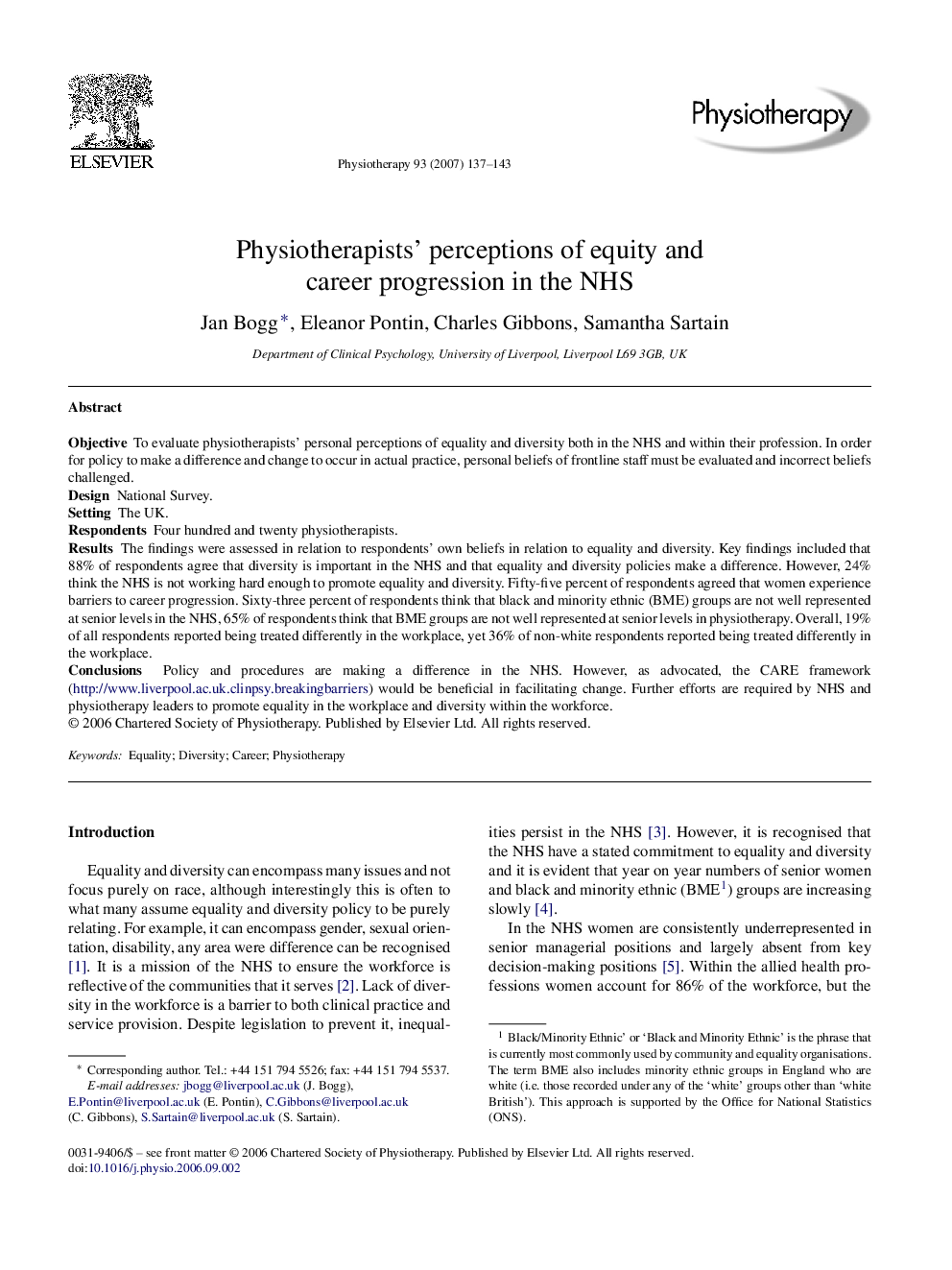| Article ID | Journal | Published Year | Pages | File Type |
|---|---|---|---|---|
| 2627767 | Physiotherapy | 2007 | 7 Pages |
ObjectiveTo evaluate physiotherapists’ personal perceptions of equality and diversity both in the NHS and within their profession. In order for policy to make a difference and change to occur in actual practice, personal beliefs of frontline staff must be evaluated and incorrect beliefs challenged.DesignNational Survey.SettingThe UK.RespondentsFour hundred and twenty physiotherapists.ResultsThe findings were assessed in relation to respondents’ own beliefs in relation to equality and diversity. Key findings included that 88% of respondents agree that diversity is important in the NHS and that equality and diversity policies make a difference. However, 24% think the NHS is not working hard enough to promote equality and diversity. Fifty-five percent of respondents agreed that women experience barriers to career progression. Sixty-three percent of respondents think that black and minority ethnic (BME) groups are not well represented at senior levels in the NHS, 65% of respondents think that BME groups are not well represented at senior levels in physiotherapy. Overall, 19% of all respondents reported being treated differently in the workplace, yet 36% of non-white respondents reported being treated differently in the workplace.ConclusionsPolicy and procedures are making a difference in the NHS. However, as advocated, the CARE framework (http://www.liverpool.ac.uk.clinpsy.breakingbarriers) would be beneficial in facilitating change. Further efforts are required by NHS and physiotherapy leaders to promote equality in the workplace and diversity within the workforce.
